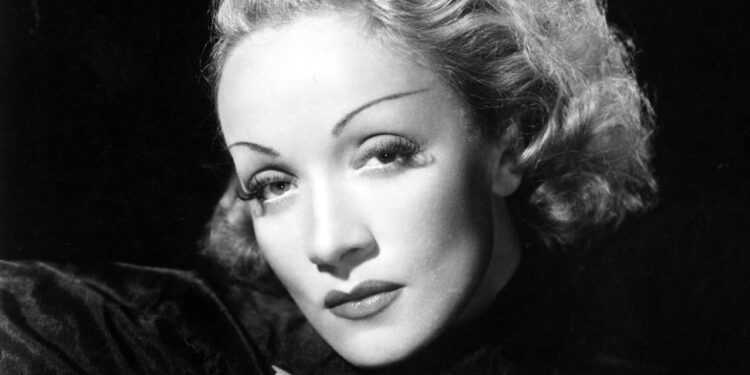Marlene Dietrich, born Marie Magdalene Dietrich in 1901 in Berlin, transcended the role of actress to become one of the most influential cultural icons of the 20th century. With her distinctive voice, sophisticated allure, and unwavering spirit, she revolutionized Hollywood’s perception of femininity and glamour.
Dietrich’s ascent to stardom began with her breakthrough role in Josef von Sternberg’s “The Blue Angel” (1930), where she portrayed the seductive cabaret singer Lola Lola. This performance captured Hollywood’s attention and led to a contract with Paramount Pictures, launching her international career. Her collaboration with von Sternberg continued through six more films, including “Morocco” and “Shanghai Express,” which cemented her status as a leading lady of the silver screen.
What set Dietrich apart was her deliberate subversion of gender norms. She famously wore men’s suits and ties at a time when such fashion choices were considered scandalous, making her an early champion of gender-fluid fashion. Her trademark look – sculpted cheekbones, arched eyebrows, and sophisticated suits – influenced fashion and beauty standards for decades to come.
During World War II, Dietrich demonstrated remarkable courage and conviction. Despite lucrative offers from Nazi Germany to return to her homeland, she became an American citizen and devoted herself to supporting the Allied cause. She entertained troops on the front lines, sold war bonds, and recorded anti-Nazi broadcasts in German, actions that earned her the Medal of Freedom and France’s Légion d’honneur.
Beyond her political stands, Dietrich’s artistic legacy encompasses over 50 films and numerous recordings. Her signature song “Lili Marlene” became an anthem for soldiers on both sides of the conflict, while her performances of “Falling in Love Again” and “La Vie en Rose” remain classics of the American songbook.
In her later years, Dietrich reinvented herself as a successful cabaret performer, touring the world with a one-woman show well into the 1970s. She largely withdrew from public life in her final years, living in seclusion in Paris until her death in 1992.
Marlene Dietrich’s influence extends far beyond her artistic achievements. She challenged societal norms, stood firmly by her principles during wartime, and created an enduring template for celebrity activism. Her legacy lives on not just in film archives and recordings, but in her impact on fashion, feminism, and the evolving definition of stardom. In an industry often criticized for its superficiality, Dietrich proved that a performer could maintain both glamour and substance, making her a true icon of the golden age of cinema.
newshub



Recent Comments